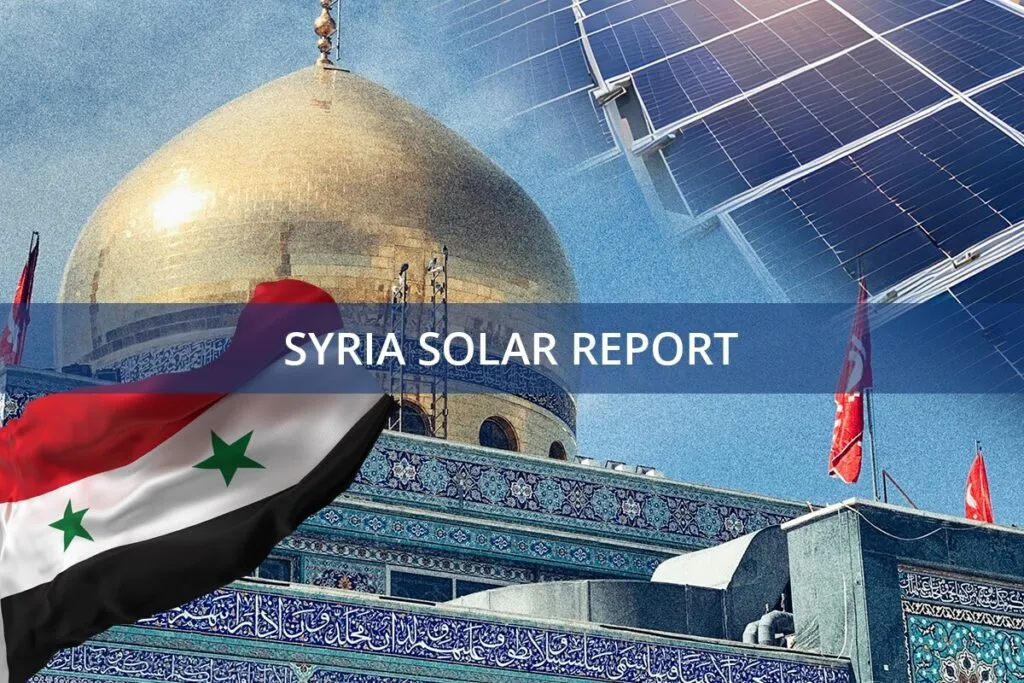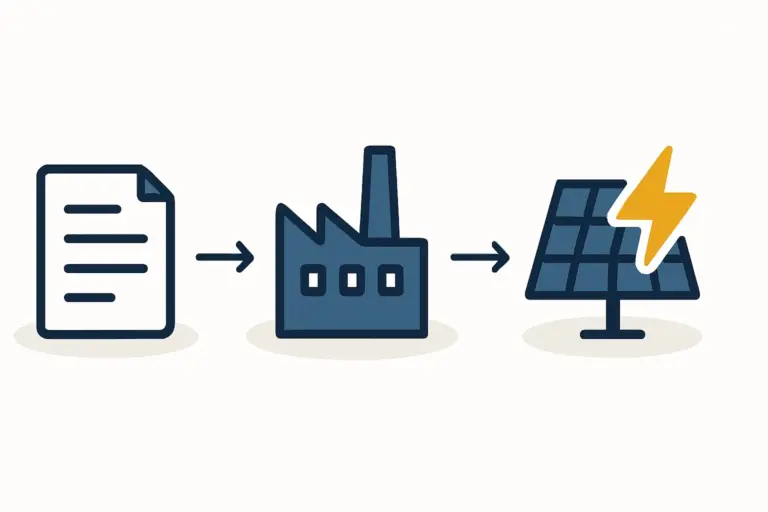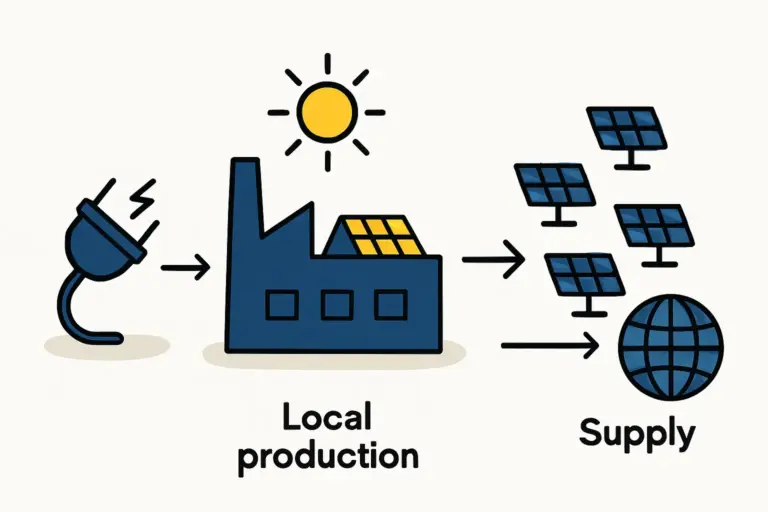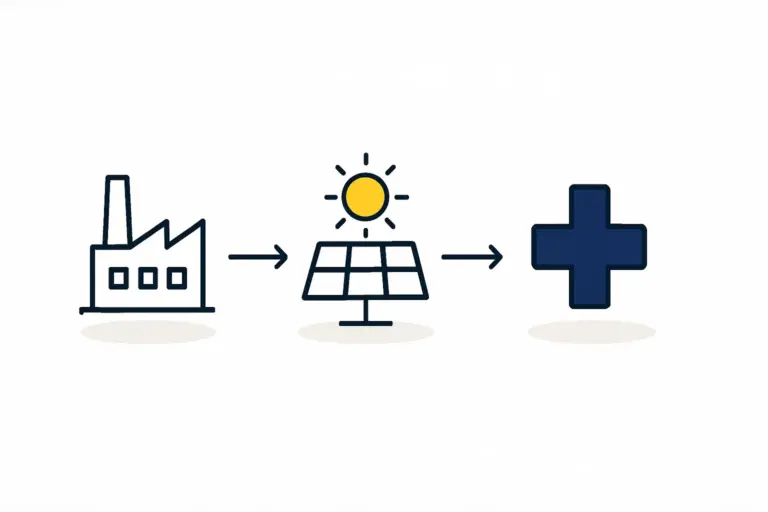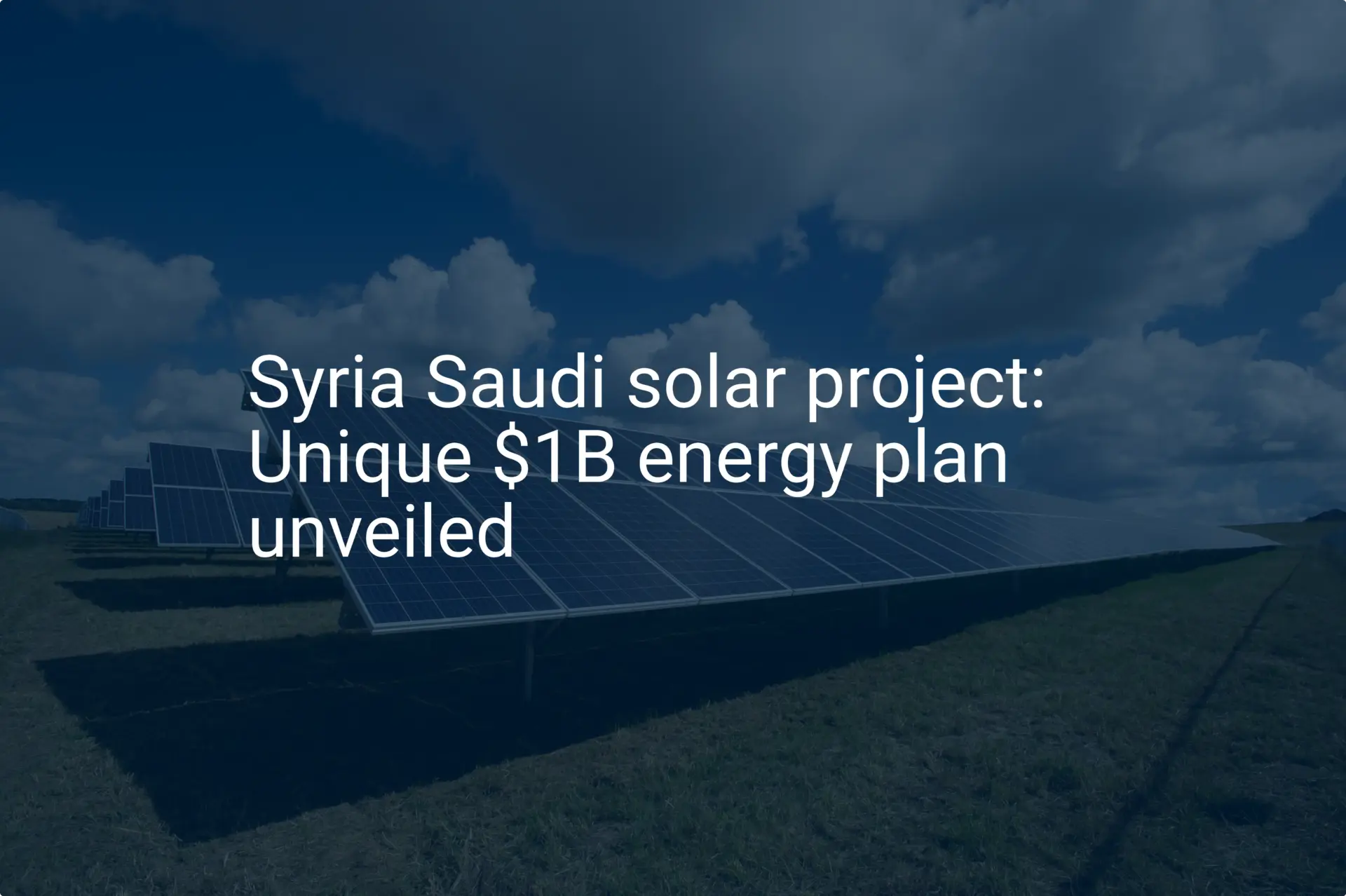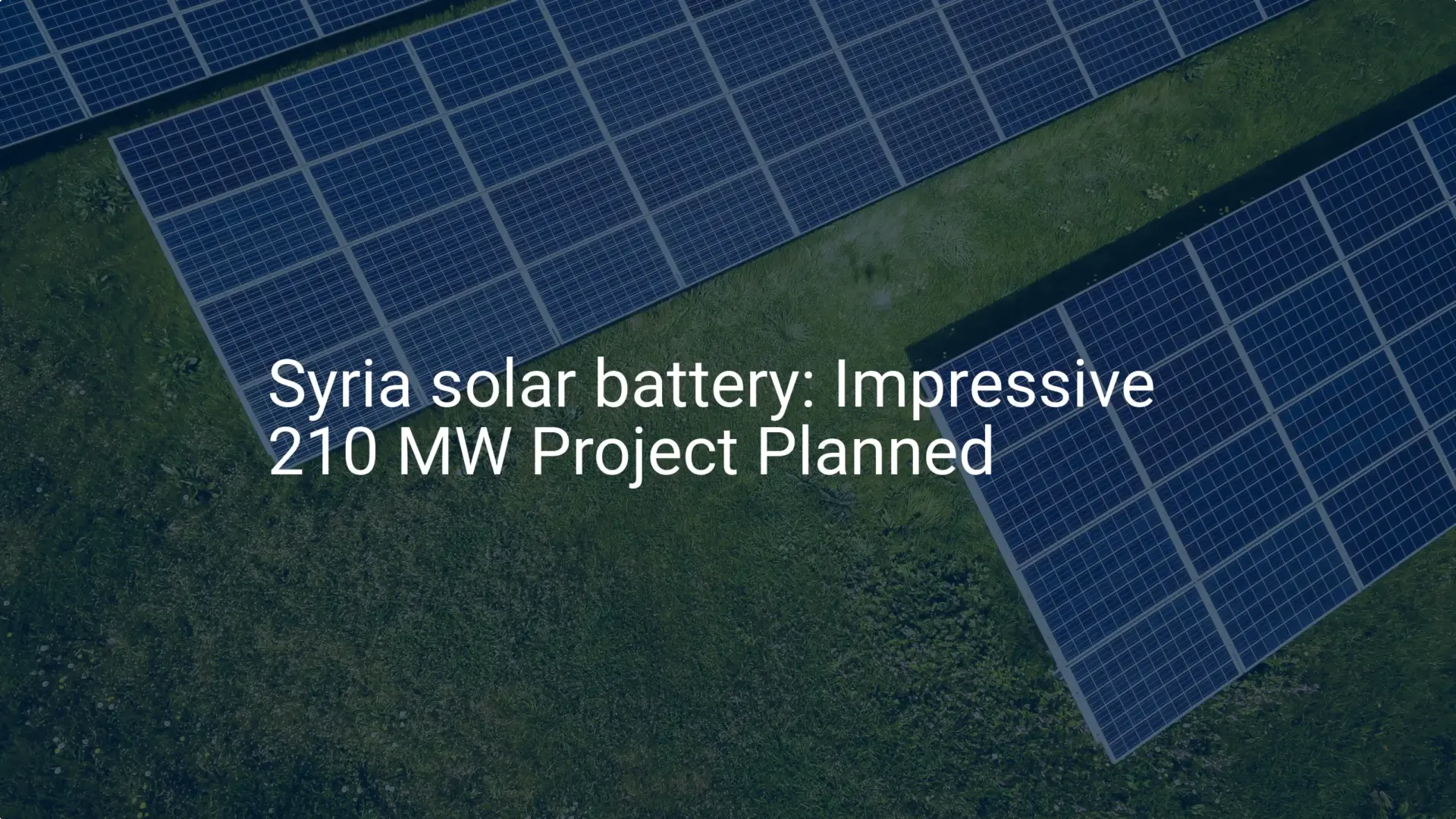An entrepreneur in Damascus spots a critical market opportunity. An unreliable national grid and abundant sunlight create immense demand for locally produced solar modules. He has secured capital and drafted a solid business plan, but as he prepares to source essential manufacturing machinery from international suppliers, he hits a formidable barrier: the complex web of international sanctions.
This scenario is a common starting point for many investors in the region, where ambition often collides with intricate geopolitical and financial challenges. This article offers a professional overview of the primary financial, logistical, and legal obstacles that arise when importing solar manufacturing equipment into Syria. It is not intended as legal advice, but as an educational guide to help potential investors understand the landscape and formulate compliant strategies.
Understanding the Sanctions Landscape

International sanctions imposed by bodies such as the United States (e.g., the Caesar Act), the European Union, and the United Nations are designed to restrict economic activity with specific entities and sectors within Syria. Although a solar panel factory is a civilian enterprise aimed at improving infrastructure, the sanctions are often broad and can inadvertently affect legitimate business operations.
Key aspects to understand include:
-
Primary vs. Secondary Sanctions: Primary sanctions prohibit companies and individuals from the sanctioning country (e.g., a US company) from doing business with Syria. Secondary sanctions are more far-reaching, penalizing third-country companies (e.g., a non-US bank or logistics firm) for engaging in certain transactions with Syria.
-
Designated Entities: Sanctions lists include specific individuals, companies, and government bodies. Any transaction linked, however remotely, to a designated entity will be blocked and may incur severe penalties.
-
Financial Scrutiny: All international financial transactions involving Syria are subject to intense scrutiny. Wary of violations, banks often block or reject any transfer related to the country, regardless of its purpose.
This means that for a potential solar manufacturer, even a project with clear commercial and humanitarian benefits will be examined through a lens of compliance and risk by every international partner—from the equipment supplier to the bank processing the payment.
Core Challenges for an Aspiring Solar Manufacturer
The theoretical plan to build a factory quickly collides with a series of practical, sanction-related hurdles. Investors must anticipate these challenges to develop a realistic timeline and budget.
Financial Hurdles: The Banking Blockade
This is often the first and most significant obstacle. The global banking system is highly integrated and sensitive to US and EU regulations.
-
Blocked Wire Transfers: Attempting to send a direct payment from a Syrian bank to a machinery supplier in Germany or China will almost certainly fail. International correspondent banks, which process these transactions, will flag and block the transfer to avoid regulatory penalties.
-
Inability to Secure Letters of Credit (L/Cs): An L/C is a standard, secure payment method in international trade, where a bank guarantees payment to the supplier upon shipment of goods. Due to the perceived risk, international banks are unwilling to issue L/Cs for Syrian beneficiaries.
-
Supplier Hesitation: Equipment suppliers, particularly in Europe, are often bound by strict internal compliance policies. Even if a payment method is found, their legal departments may veto the sale to avoid any association with a sanctioned market.
Logistical Nightmares: Shipping and Insurance
Moving heavy, sophisticated machinery across borders is complex even in normal circumstances. Sanctions add multiple layers of difficulty.
-
Refusal to Ship: Major international shipping lines (e.g., Maersk, MSC, CMA CGM) have suspended services to Syrian ports like Latakia. This suspension is driven by direct sanctions, the inability to get insurance, and the risk of their vessels being designated.
-
Insurance Voids: Marine cargo insurance is essential for high-value shipments. Global insurers will not provide coverage for goods destined for Syria, making any shipping attempt a significant financial risk.
-
Complex Routing: The only viable option is often a multi-stage logistical chain. This may involve shipping the equipment to a port in a neighboring country, transferring it to a local logistics partner, and arranging for overland transport. This process dramatically increases costs, extends delivery times, and introduces multiple points of potential failure. A comprehensive solar panel manufacturing business plan must account for these inflated and unpredictable logistical costs.
Sourcing and Compliance Risks
The equipment itself can be a source of scrutiny. Authorities are concerned about ‘dual-use’ technologies—components that could potentially be repurposed for restricted applications.
-
Dual-Use Scrutiny: A solar module production line contains advanced equipment like laminators, cell stringers, and testers. These machines include sophisticated electronics, control systems, and chemical processes that can attract regulatory attention.
-
Supplier Due Diligence: Reputable manufacturers of the required machinery for a solar factory are legally obligated to know their end customer. They will conduct extensive due diligence, and any ambiguity about the final destination or end-user in Syria is often enough to halt the procurement process.
Strategic Approaches to Mitigation and Compliance
While the challenges are significant, they are not insurmountable. Success depends on a meticulous strategy built on transparency, compliance, and specialized expertise.
Establishing Compliant Transaction Channels
Direct financial engagement is often impossible, so creating a compliant intermediary structure is essential.
-
Third-Party Procurement: A common strategy involves establishing a legally separate trading or procurement company in a neutral jurisdiction, such as the United Arab Emirates. This entity can legally purchase the equipment from the manufacturer and then manage the complex logistics of its onward transfer.
-
Specialized Financial Institutions: Working with financial institutions and agents that have proven experience in complex markets is critical. These partners understand the documentation required to demonstrate the civilian nature of the project to regulators.
-
Transparent Documentation: Every step of the transaction must be transparently documented. This includes end-user certificates, detailed project plans, and contracts that clearly state the equipment is for a solar module factory and will not be diverted.
Based on experience from J.v.G. turnkey projects in complex regions, establishing a clear, documented payment and ownership trail through a reputable intermediary is a critical first step, preceding any equipment purchase orders.
Strategic Sourcing
The choice of supplier is not just a technical decision but a strategic one. While European machinery is highly regarded, suppliers from jurisdictions that do not adhere to US or EU sanctions may present a more direct procurement path. Manufacturers in China or India, for example, may have different risk tolerances and compliance frameworks. However, this approach requires rigorous due diligence to ensure the equipment meets the necessary quality, performance, and safety standards for a turnkey solar module production line.

A Case Study in Problem-Solving
An investment group in Syria aimed to establish a 50 MW production line. They faced an immediate rejection from their European bank when attempting to pay the initial deposit to a German machine supplier. The project was stalled for months.
The solution involved restructuring the purchase through a registered trading entity in Dubai. This entity, with its own independent banking facilities, acted as the official buyer. It procured the equipment from the German supplier and managed the complex, multi-modal shipping to Syria via a third country. All contracts and end-user statements were prepared meticulously by legal experts to ensure full transparency. While this added nearly three months to the project timeline and increased administrative costs by 8%, it provided a compliant path forward for the project.
Frequently Asked Questions (FAQ)
Can humanitarian exemptions be used for a solar factory?
Generally, no. Humanitarian exemptions are narrowly defined and apply to essential goods like food, medicine, and medical supplies. A commercial industrial project, even one with clear benefits for the civilian population like power generation, typically does not qualify for these specific exemptions.
Is it cheaper to buy machinery from China to avoid sanctions?
The initial purchase price of equipment from certain Chinese suppliers may be lower. The main advantage lies in a potentially simpler transaction, as many Chinese companies and banks do not enforce US/EU sanctions. However, investors must conduct thorough due diligence regarding equipment quality, long-term reliability, spare parts availability, and the level of after-sales support provided.
What is the biggest mistake investors make in this situation?
The most common and costly mistake is underestimating the complexity of the non-technical aspects of the project. Many investors focus entirely on the technology and finances but fail to plan for the months of legal, financial, and logistical work required to navigate the sanctions environment. Assuming a standard international procurement process will work is a frequent cause of project failure.
How can a company like J.v.G. Technology GmbH assist?
Consulting and engineering firms with global experience, such as J.v.G., provide the necessary technical and project management expertise. For projects in regions under international sanctions, their role is to guide clients in establishing compliant frameworks for procurement and logistics, help design the factory layout, and ensure technical specifications are met—all while operating strictly within international law. The ultimate legal and financial responsibility for importation rests with the client’s established entities.
Conclusion and Next Steps
Launching a solar module manufacturing facility in Syria offers a powerful opportunity to address the country’s energy needs and build local industrial capacity. However, the path is defined by a unique set of non-technical challenges rooted in international sanctions.
Success is not about finding loopholes, but about building a robust, transparent, and compliant strategy from the very beginning. What’s required is a shift in mindset: the legal and financial framework is just as critical as the engineering plan. Investors must allocate sufficient time and resources to engage with legal counsel, trade finance specialists, and experienced engineering partners who understand the intricacies of operating in such a demanding environment.
Entrepreneurs who acknowledge and proactively address these challenges can navigate the complexities and turn a promising business concept into a functioning reality.


